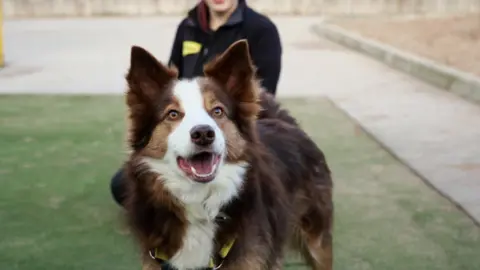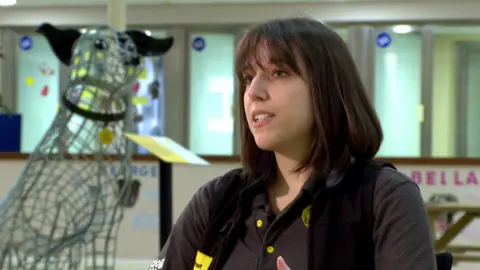Dogs given up since pandemic at 'record highs'
 BBC
BBCThe number of pets being given up for rehoming has reached "record highs", according to the Dogs Trust.
Two hundred dogs have been taken in to be cared for by the animal welfare charity across their two centres in Greater Manchester and Merseyside.
The charity said its Denton base had seen record numbers given up since the coronavirus pandemic, with 52,000 inquiries from struggling owners in its immediate aftermath and another 43,000 last year.
Emma Wakefield, head of operations at the Dogs Trust north, said the pandemic and cost of living crisis "created a perfect storm" for the influx in animals for rehoming.
She said: "Some people probably made quite quick decisions about getting a dog and then ended up in a situation that they weren't anticipating."

The number of dogs in the UK, which grew during the pandemic along with the number of people breeding them, is currently estimated to be 13.5m.
The average age for dogs born during the pandemic is now four-and-a-half.
Ms Wakefield said that was why research was so important before making a decision on getting a dog and which breed to adopt.
"There are lots of people who perhaps their breeding practices aren't fantastic, and they are breeding more for profit as opposed to the behaviour you really want in a family pet," she said.
'Treating unwanted behaviours'
The Dogs Trust said 25% of people contacting them blamed unwanted behaviour as the reason for wishing to rehome an animal.
Charlotte Moyes, assistant behaviour manager at the Dogs Trust in Manchester, said leaving unwanted behaviour untreated for a long period could make it worse or harder to change for the dog in the future.
"The key is not to leave it too late, get help at the earliest point rather than leaving it two, three years down the line," she said.
Training classes were not available during the pandemic, and socialising with others was often curtailed due to the restrictions.
"Because they missed out on that opportunity, we now have a group of dogs who are becoming adolescents and the problem behaviours are really starting to come to a head," Ms Wakefield added.
The trust said the centres were witnessing behaviours including separation anxiety, barking while out on a walk, or at other people or dogs, and pulling on the lead, which could all contribute to the struggle to cope for some pet owners.
The Dogs Trust currently cares for 11,000 dogs at 23 sites across the UK but said it was increasingly offering training classes, an advice line and community support to help owners keep their dogs.
Listen to the best of BBC Radio Manchester on Sounds and follow BBC Manchester on Facebook, X, and Instagram, and watch BBC North West Tonight on BBC iPlayer.
